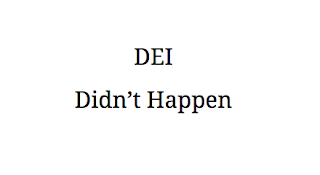Below is an early work-in-progress attempting to document examples of deeply performative and tokenistic non-effort from health institutes who publicly declared commitment to inclusivity, DEI work, and said they highly valued community engagement.
This is not meant to shame. This is meant to ask and advocate for accountability on those promises. The lived experience, all along, has only ever wanted to be respectfully included and listened to in an empowered manner. That should not be such a hard ask to accommodate.
Boston University School of Public Health (BUSHP)
This report is a follow-up to our spring outreach efforts asking U.S. health research programs to make good on public promises to develop meaningful partnerships with health stakeholder communities, especially those with lived experience. The following letter was sent once a week for six consecutive weeks to BUSHP leadership and never responded to.
Letter to Boston University Asking for Co-Empowered Peer Inclusion in Public Health Research and Support Efforts
What then, has BUSHP done thus far to support DEI commitments? Let's look at
May 24th, 2022 BUSPH Dean's Letter - Public Commitment to Anti-Racism
"In the years since George Floyd’s murder, our school has worked to build on our longstanding engagement with the link between racism and health. We have welcomed lawmakers to our community to discuss antiracism as health policy, our scholars have engaged with the BU Center for Antiracist Research to continue this conversation, and our students, faculty, staff, and alumni work each day to shape a world free of racism and the poor health it creates."
1.5 Years Later, Only Two Miniscule Examples of DEI Curriculum Reform Initiatives
As of Aug 2023, the only two reported curriculum reform actions have been an assigned short faculty self-evaluation exercise and a "book of the year" program where a single book is chosen and sent out to incoming (first year) Masters of Public Health students. It is unclear if it is assigned reading versus merely being suggested. Details on both programs listed below.
Syllabus Assessment Tool And Process
This initiative aims to provide instructors with guidance on how to engage effectively with DEIJ in the classroom. The goal of this process is for instructors to do a self-evaluation that will allow them to identify areas of strength and areas that can be improved towards ensuring that all our teaching aligns with our DEIJ goals. This process is non-evaluative and is meant to help guide faculty to improve their own courses.
The complete tool can be found here for reference and for help while drafting responses, but all assessments must be formally submitted here.
SPH Reads
SPH Reads is a school-wide reading program hosted by the Office of Diversity and Inclusion. It aims to encourage critical thought and discussion among all members of the BUSPH community, and is centered on a carefully chosen, thought-provoking book.
All incoming (first year) MPH students and core-course faculty are encouraged to read the selected book and will be provided with copies. Returning students, non-core curriculum faculty, and staff are encouraged to read the book. Throughout the year, beginning with Orientation, there will be opportunities to gather and talk about the issues presented in the book through lectures, seminars, and small discussion groups involving all members of the SPH community.
Community Suggested Reform Actions
This section is a work in progress and is a collaborative effort with dozens of lived experience communities representing thousands of currently marginalized peer voices.
• Hiring of lived experience approved curriculum assessment experts with authoritative control over course content themes, suggested readings, and assessment procedures to ensure compliance
• Mandatory DEI professional development trainings led by lived experience approved trainers
• Hiring of community approved lived experience course instructors
* * *

No comments:
Post a Comment